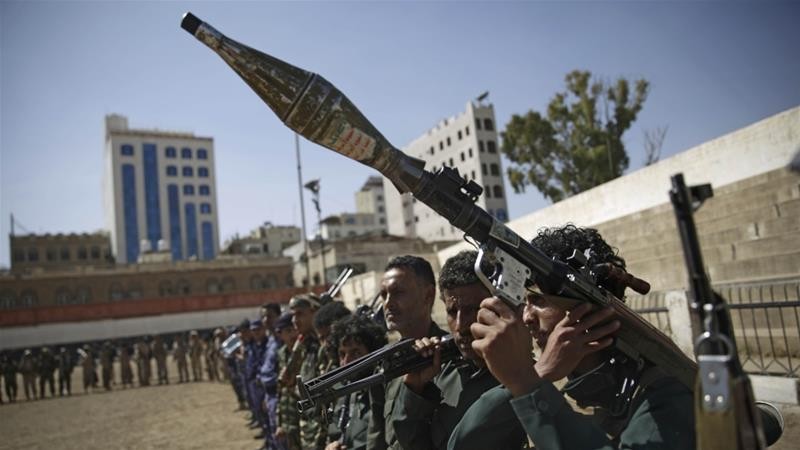
Five years since a Saudi-led coalition of Arab states launched a military intervention against Houthi rebels in Yemen
The Houthi advances against forces loyal to President Abd-Rabbu Mansour Hadi and their regional allies have come despite the financial power of the Saudi-led coalition and the continuing international and domestic isolation of the rebel movement.
Buoyed by his group’s military progress in recent months, Houthi leader Abdelmalek al-Houthi has urged the coalition, led by Saudi Arabia and the United Arab Emirates, to halt attacks.
, the movement continues to make advances in the country’s north.
In recent weeks the group has taken control of territory in Jawf province including its main city of Hazm, which lies northeast of the capital, Sanaa, while it has also pushed into parts of the resource-rich Marib province, the last stronghold of Yemen’s internationally recognised government in the north.
Impact of intervention
Before the coalition started air raids on March 26, 2015, the Houthis had forced President Hadi to flee to the southern city of Aden after holding him temporarily under house arrest.
They had also taken over the majority of Yemen’s populous northern and central highlands. Houthi control of the country’s air force meant that they were able to bomb pro-government forces in Aden, and almost took full control of the city. Hadi fled to Saudi Arabia the day before Riyadh launched its aerial intervention.
Within months, Saudi Arabia, the UAE and their allies on the ground pushed the Houthis out of southern Yemen towards their northern heartland.
“The most important success of the war has been preventing the Houthis from controlling all of Yemen, or the majority of it, especially the oil and gas-rich areas,” said Abdulnaser Almuwadea, a Yemeni political researcher.
“The Houthis have been unable to get international recognition, which would have been a possibility if the Houthis had taken control of Yemen and not faced any local resistance.”
But the intervention and the protracted conflict has caused what the UN describes as the world’s worst humanitarian crisis in the poorest country in the Middle East.
More than 100,000 people have been killed in the war, according to ACLED (Armed Conflict Location and Event Data), including 12,000 civilians. According to the World Food Programme, 24 million Yemenis are in need of humanitarian assistance, while 20 million are food insecure.
“Air strikes hitting civilian areas and infrastructure have led to fewer Yemenis supporting the war, and the Houthis have been able to take real advantage and grow their base,” Almuwadea said.
“The weakness of the Yemeni government and the absence of its real presence on the ground in many areas … has strengthened the Houthis and made their control of the north more deep-rooted.”

